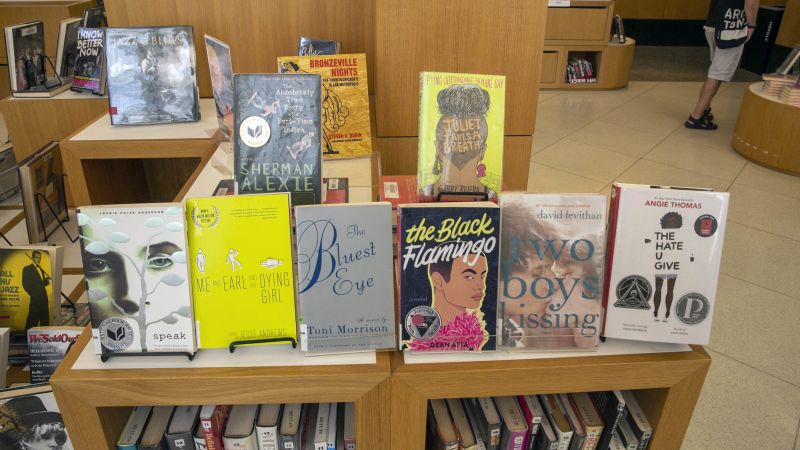America’s right-wing forces have been spearheading a disturbing wave of book bans across the nation, despite their claims of being champions of free speech. PEN America, a non-profit organization dedicated to protecting free expression, published a report titled “Banned in the USA” that highlights the increasing trend of book bans in public school systems. The bans, which have been accelerating, initially stemmed from backlash against Nikole Hannah-Jones’s 1619 Project and the fear of critical race theory indoctrination in schools, but have since expanded to encompass other controversial topics such as gender ideology.
The censorship campaign has been reinforced by the right-wing media, which ironically touts itself as pro-free speech. Groups like “Libs of TikTok” have targeted specific school systems and pressured administrators to remove certain books from library shelves. A variety of books have been removed from schools nationwide, including works by acclaimed authors like Margaret Atwood, Rupi Kaur, and Ta-Nehisi Coates. The efforts to ban these books have disproportionately targeted works by women and nonbinary authors and have focused on themes of race, racism, and LGBTQ+ topics.
The most severe instances of book bans are occurring in Florida and Texas, with Florida having banned over 5,100 books and Texas banning over 1,500 books between July 2021 and December 2023. Authors whose books have been banned have faced harassment and threats online, with instances of name-calling and defamation. Despite the bleak situation, there is a glimmer of hope as resistance to the bans is growing. Major publishers are actively supporting legal cases to halt book banning in states like Iowa, and ordinary people across the country are getting involved to combat the trend.
The resistance to the book bans is diverse, with students leading protests and demonstrations against censorship in schools. Authors, parents, and other advocates are joining efforts to oppose the removal of books, showing coordination, resources, and organization to counter the censorship campaigns. One author, Abdi Nazemian, shared his experience of having his book banned and the emotional toll it took on him, particularly in sending negative messages to young queer individuals. Despite the challenges and threats, there is a united front emerging to defend free speech and protect the right to access diverse and inclusive literature in schools.
In conclusion, the escalation of book bans in public school systems, driven by right-wing forces and media, poses a significant threat to free expression and access to diverse perspectives. The bans, which initially targeted critical race theory and gender ideology, have expanded to encompass a wide range of topics, leading to increased censorship of books by marginalized authors. However, there is growing resistance to these bans, with major publishers and ordinary citizens joining forces to combat censorship and protect the freedom to read. The efforts to oppose book banning are being led by a diverse group of individuals, including students, authors, and parents, showcasing a united front against the suppression of ideas and voices in educational settings.


